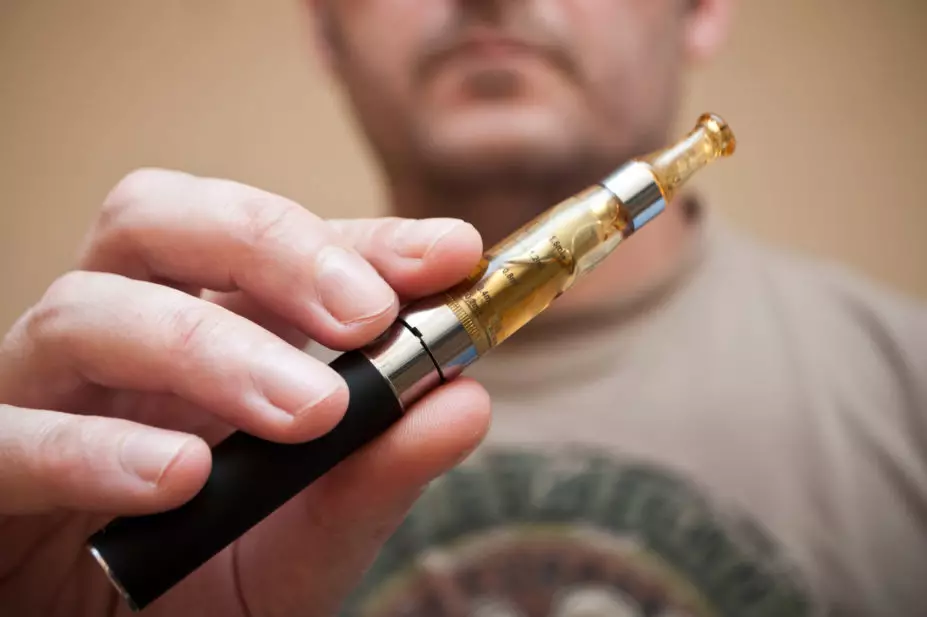
Shutterstock.com
E-cigarettes could be prescribed on the NHS in England as a smoking cessation aid if they are medically licensed by the medicines regulator, the government has announced.
The Medicines and Healthcare products Regulatory Agency (MHRA) is now allowing manufacturers to submit their e-cigarette products for approval to become licensed medical products.
In a statement on 29 October 2021, the Department of Health and Social Care (DHSC) said that if a product receives MHRA approval, “clinicians could then decide on a case-by-case basis whether it would be appropriate to prescribe an e-cigarette to NHS patients to help them quit smoking”.
This could place England as the first country in the world to prescribe e-cigarettes licensed as a medical product, the DHSC said.
The statement added that although e-cigarettes are “not risk free … expert reviews from the UK and [United States] have been clear that the regulated e-cigarettes are less harmful than smoking”, with medicinally licensed e-cigarettes expected to pass rigorous safety checks.
In June 2021, draft guidelines produced by the National Institute for Health and Care Excellence (NICE) and Public Health England said that healthcare professionals, including pharmacists, should offer advice on e-cigarettes as a strategy for smoking cessation.
The guidance cited evidence indicating that nicotine-containing e-cigarettes are similarly effective to other smoking cessation options, such as nicotine replacement therapy (NRT).
However, research around the use of e-cigarettes has not always been positive. One study, which followed 32,000 adults over three years, found that e-cigarettes significantly increase the risk of chronic lung disease, while another found that people who use e-cigarettes alongside traditional cigarettes are no more likely to quit smoking in the long term than those who only smoke cigarettes.
In 2019, the European Respiratory Society declined to recommend the use of e-cigarettes as a smoking cessation aid, having said that doing so is “replacing a very harmful product with a less, but still harmful, product”.
However, in its statement the DHSC said that some of the highest success rates of those trying to quit smoking are among people using an e-cigarette to stop smoking alongside local Stop Smoking services, with up to 68% successfully quitting in 2020/2021.
Claire Anderson, president of the Royal Pharmaceutical Society, told The Pharmaceutical Journal that the Society is interested to see “whether manufacturers will approach the MHRA”.
“Smoking remains one of the biggest killers and we should therefore continue to explore all ways in which we can reduce the harm caused. Ensuring medicinally licensed e-cigarettes are safe and effective and that they do no harm to people is vital,” she said.
“As our e-cigarettes policy states, we advocate the precautionary principle approach to minimise exposure to e-cigarette vapour until more safety data becomes available. Non-smokers should not start using e-cigarettes.”
Sajid Javid, UK health secretary, said in the press release: “Opening the door to a licensed e-cigarette prescribed on the NHS has the potential to tackle the stark disparities in smoking rates across the country, helping people stop smoking wherever they live and whatever their background.”
READ MORE: E-cigarettes have no place in pharmacy
You may also be interested in

Smoking cessation medicine cytisine to be available in January 2024, distributor confirms

Scottish government considers nicotine addiction treatment for children aged under 12 years
